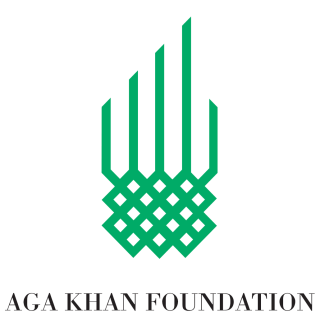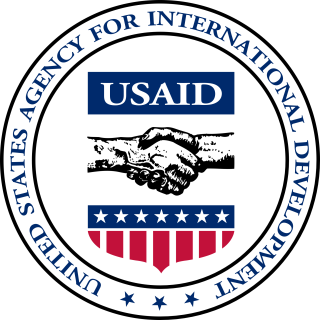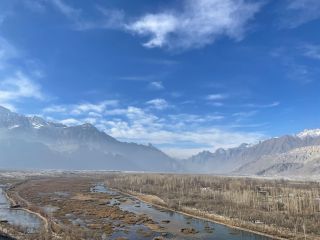Is it safe to travel to Pakistan – has always been and will be for some time one of the major questions we are asked about Pakistan. We are aware that many governments warn against travel here but ultimately this is up for you to decide whether you are up for traveling to Pakistan or not. But here’s what we have to say about this.
First of all we are always trying to keep up-to-date with the current internal safety situation and should we think something doesn’t look right we would cancel or postpone the tour, and we have done so before. Your safety is always our priority and we are strict with this.
Secondly, most of the areas you’d want to go to in Pakistan to see its beauty are actually quite safe for tourists and locals alike. And others (for example, the city of Quetta) where most of the insurgency happens actually do require a special permit to go to so you can’t go there just on a whim. It may also be possible that an armed guard could be assigned to us.
Pakistan’s security had improved dramatically since 2014 and since the government launched Garb-e-Azb, the number of attacks since then had fallen sharply. Certain areas require a permit to but these are not the areas where most of the people would actually want to see. And of course do not forget to get a very comprehensive insurance that would cover you for anything here. And after the COVID-19 it would also be a good idea to have an addition to the insurance that would cover you for any reason of cancellation.
Pakistan is known for its hospitality and you will be pleasantly surprised about the help often spontaneously offered. If you still require security – we can provide a private armed escort/guards within the cities or outside. Please, use common sense, be respectful and avoid sensitive topics such as religion and politics.
As said before, the general security situation has improved relatively in recent years. However, there is still a real risk of serious security problems in some places (terrorist attacks, disturbances, violent demonstrations, kidnappings, etc.) and it is advised to do your research on the current situation. In view of the security situation, there are extensive restrictions on the freedom of movement of the local population and especially foreigners, and there are frequent checks (documents, luggage, searches, …) on the way and when entering buildings or shopping centers. Make sure you have enough copies of your passport and visa with you. The sometimes unclear regulations in this regard can lead to intrusive checks and arbitrariness by the security services.
After the murder of 10 foreign tourists on the inaccessible Diamer side of the Nanga Parbat in June 2013, the Pakistani government has taken drastic measures to strengthen security in the area. This translates into dozens of checkpoints along the road and strict controls. The greatest caution is advised when traveling on the Karakoram Highway. The safest section of the Karakoram Highway is that from Gilgit via Hunza to the Chinese border on the Khunjerab Pass. The section from Besham via Chilas to Gilgit, as well as the Babusar Pass, are unsafe and not recommended.
Avalanches and landslides regularly occur in the mountains in the north of Pakistan. Several mountaineers lose their lives every year. It is recommended to travel by domestic flight (Gilgit, Skardu).
It is recommended in all cases to prepare a trip or stay with local confidential advisers and closely follow current events and avoid movement at the slightest irregularity and move in safety, and keep a low profile in all circumstances, never interfere with even seemingly harmless problems, and move quickly from any trouble spot. This is also the case for business people who visit Pakistan in the context of commercial or economic activities and for those who wish to come to Pakistan for family visits or trekkers who wish to visit the mountainous regions of the country
Since 2008, the country has been hit by a wave of attacks that have already claimed the lives of tens of thousands of people. Several terrorist organizations are active in the territory. The provinces of Khyber-Pakhtunkhwa and Balochistan and the tribal areas in the northwest are mainly affected. The victims are often police officers and military personnel, but there is a tendency to target civilians (particularly members of minorities) and foreigners as well. There are significant anti-American sentiments that can extend to all Westerners. They are potential targets and it is advised to be vigilant at all times.
As the attacks on the international airports in Karachi and Peshawar in 2014 showed, airports or stations are also vulnerable targets. Attacks often happen during certain religious festivals, especially of the minorities (Shia, Christian). Attending it, even as a spectator, is strongly discouraged. The same applies to demonstrations, whether spontaneous or not, that often turn into violence. When confronted with this, one should immediately turn around and find a safe shelter. Shia mosques in particular are the target of violence. Visiting these mosques is discouraged; when visiting churches, great caution should be exercised and avoid large crowds (eg on Sundays).
Crime occurs throughout Pakistan, especially in the big cities (Karachi is the least safe in that area). (Armed) robberies, murders and violence against religious or sexual minorities are regularly reported. Foreigners are also sporadically targeted by kidnappings.










